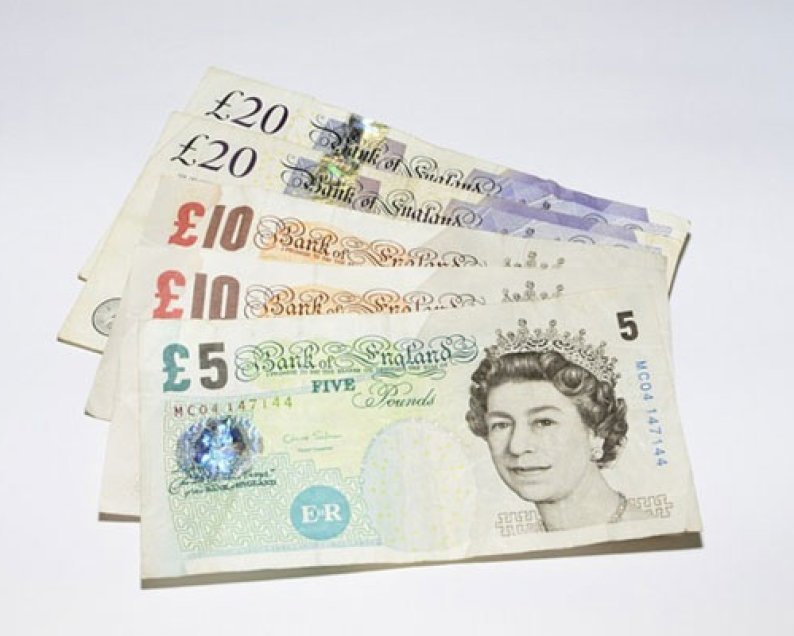London: Essentials


Currency
The pound, known officially as the pound sterling to differentiate the British version from other countries which use the pound, is the UK currency. If you haven't bought pounds before you leave home, most major banks in London offer competitive rates. Dedicated currency exchanges are plentiful, but take care to compare several offers because rates can vary wildly.
London is one of the world's most expensive cities so expect to pay more than you're used to for meals, transport and for nights out. The old traveller's adage of bringing twice the money and half the clothes than you think you'll need is never more applicable than in London.

Everyday practicalities
Electrics: Plugs have three prongs and matching sockets offer a 240V current. Adaptors from any other international system are widely available at airports on arrival, or in major department stores in London itself.
Roads: Cars drive on the left hand side of the road. London's traffic is always congested and there's little room for error. If you're a visitor on foot in London, always remember to look the correct way as you cross the road. Zebra crossings require all motor vehicles to stop as soon as pedestrians set foot on the road. Londoners can be impatient at crossings with traffic lights, but visitors are always advised to wait for the green man symbol before walking. There's a unique pedestrian experiment at London's busiest junction, Oxford Circus, with diagonal crossing available.
Opening hours: London shops are mostly open seven days a week. Most of the famous department stores, such as Selfridges, Harvey Nichols and Harrods, open their doors at 9.30 am or 10 am. Closing times vary with some stores remaining open until 9 pm. Sunday opening in all shops is restricted by law to any six hours between 10 am and 6 pm. Pubs and bars have a variety of opening hours and these vary from place to place.
Tipping: Leave 15% at restaurants, if a service charge is not already added to the bill. Remember to check and always ask if you're not sure whether a tip has been added or not. Visitors who choose to use a London cab can tip at their discretion. Londoners tend to round out the fare to the nearest pound - or sometimes the note that they offer the driver - and say "Keep the change" to the "cabbie", as the drivers are known.

Museums and Galleries
While London is an expensive city, its greatest museums and galleries offer free entry to their vast permanent collections. These include: the British Museum, the National Gallery, Tate Modern, Tate Britain, the Victoria and Albert Museum, the Science Museum and the Natural History Museum.
All of the important galleries and museums in London usually have temporary exhibitions which attract an entry fee. This is worth paying only if you're attracted to the major artists and displays that these exhibitions feature.
Those in search of free art will also want to take advantage of London's many commercial art galleries which showcase the latest contemporary art for sale and where visits are always free.

Visas
Citizens of any country in the European Economic Area currently require no visa to enter Britain. These countries are: Austria, Belgium, Bulgaria, Croatia, Cyprus, the Czech Republic, Denmark, Estonia, Finland, France, Germany, Greece, Hungary, Iceland, Ireland, Italy, Latvia, Liechtenstein, Lithuania, Luxembourg, Malta, Netherlands, Norway, Poland, Portugal, Romania, Slovakia, Slovenia, Spain, Sweden and Switzerland.
In addition citizens of the following countries require no visa for visits of up to six months: Andorra, Antigua and Barbuda, Argentina, Australia, the Bahamas, Barbados, Belize, Botswana, Brazil, Brunei, Canada, Chile, Costa Rica, Dominica, East Timor, El Salvador, Grenada, Guatemala, Honduras, Iceland, Israel, Japan, Kiribati, Malaysia, Maldives, Marshall Islands, Mauritius, Mexico, Monaco, Micronesia, Namibia, Nauru, New Zealand, Nicaragua, Palau, Panama, Papua New Guinea, Paraguay, Saint Kitts and Nevis, Saint Lucia, Saint Vincent and the Grenadines, Samoa, San Marino, Seychelles, Singapore, Solomon Islands, South Korea, Tonga, Trinidad and Tobago, Tuvalu, United States of America, Uruguay, Vanuatu.
Citizens of all other countries require visas which must be applied for at a British Embassy or Consulate before beginning your journey. Please check the UK visa site if you are in any doubt.

Public holidays
The British call public holidays "bank holidays", because these were first defined by the Bank of England. Aside from Christmas and New Year, bank holidays are observed on Mondays to allow for a long weekend.
Today the English bank holidays are:
- New Year's Day: 1 January
- Good Friday and Easter Monday
- May Day: First Monday in May
- Spring Bank Holiday: Last Monday in May
- August Bank Holiday: Last Monday in August
- Christmas Day: 25th December
- Boxing Day: 26th December
The additional exceptions are if Christmas and/or New Year are at the weekend, when extra bank holidays are added on the Monday and, if necessary, the Tuesday following.
